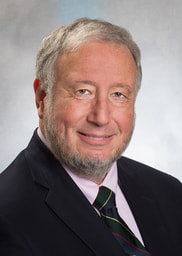 Tags: Jerry Avorn The genius of the American health care system is its fragmentation. And by ‘genius,’ I mean evil genius, or demented genius. And sadly, also ‘very stable genius,’ since that awful fragmentation has been stubbornly resistant to change. It’s a great way to maximize revenue and expenditures, but not the best way to provide care to patients – and it leads to much of the poor care and unaffordable costs that we face. In many organizations caring for patients over 65, their medication use is stripped away into Medicare drug benefit plans separate from the way the rest of their clinical care is paid for and organized. Many payors in the private and public sector carve out the use of drugs for specific conditions, removing it from the organization and payment for the care of the illnesses those drugs treat. Outside integrated health care systems, in many settings the content and costs of prescribing decisions live in a pharmacy silo separate from ambulatory care, which itself is often a world apart from inpatient care, with all of these sectors de-coupled from assessment of clinical outcomes and patient satisfaction. But sick people don’t come in silos, and the drugs we prescribe for them drive hospitalization and other clinical outcomes and the enormous human and economic costs of both.  Academic detailing can help pull these domains together in a way that can make medical care more person-based and evidence-based, as well as more cost-effective. The AD interventions that work best start from the global perspective of the practitioner: how to diagnose and care for a given clinical problem, whether it’s Alzheimer’s disease, diabetes, or incontinence, rather than focusing narrowly on simple medication use questions (“Don’t prescribe Drug X; Drug Z isn’t on the formulary”). This holistic approach is what clinicians and patients need and want, and the one most likely to bring about optimal care decisions. Such a “beyond the drug silo” approach also has implications for the content and focus of the printed clinical materials our programs use, as well as the interactive approach employed by the outreach educator in these programs. Focusing on silo-busting can also help the academic detailer be seen as a valued colleague helping the clinician improve overall patient care, rather than as a nag, a busybody, or a scold. And as the US health care system continues its slow transition away from the evils of fragmentation to a more rational approach that focuses more on integration of care and less on widget-based revenue maximization, the comprehensive, clinical outcome based vision of academic detailing will increasingly help to pull all the pieces back together where they belong. Want more? Peruse the archive of Jerry's pieces here on DETAILS. _____________________________________________________________ Biography. Jerry Avorn, MD, Co-Director, NaRCAD Dr. Avorn is Professor of Medicine at Harvard Medical School and Chief of the Division of Pharmacoepidemiology and Pharmacoeconomics (DoPE) at Brigham & Women's Hospital. A general internist and drug epidemiologist, he pioneered the concept of academic detailing and is recognized internationally as a leading expert on this topic and on optimal medication use. Read more. Comments are closed.
|
Highlighting Best PracticesWe highlight what's working in clinical education through interviews, features, event recaps, and guest blogs, offering clinical educators the chance to share successes and lessons learned from around the country & beyond. Search Archives
|
